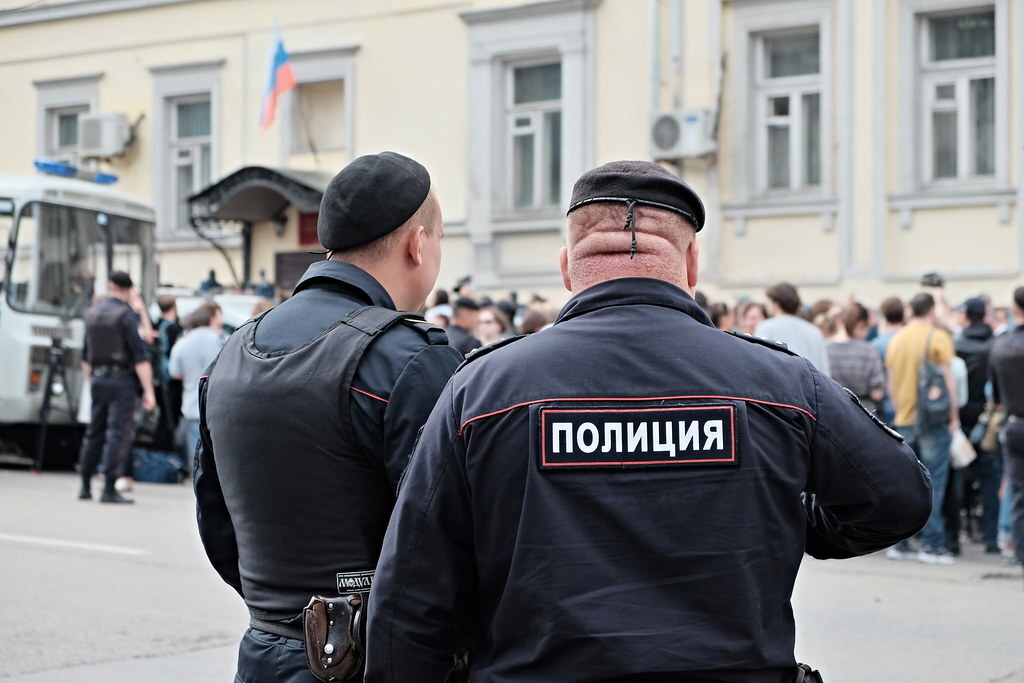Conclusions

The above analysis allows us to make an unequivocal conclusion that the situation regarding freedom of association in Russia has seriously deteriorated over the last two years. The problem appears to be of complex and systematic nature. Independent civil society organizations experience all sorts of pressure from the state: they are unlawfully denied registration, subjected to intrusive inspections of various government agencies, court proceedings, threats to health and life, criminal persecution of NGOs’ leaders, etc. In a number of cases the said pressure acquired a form of campaign aimed at destroying an organization and depriving it of any possibility to be engaged in its activities.
The turning point of the recent period was the adoption of the new law on NGOs, the obviously repressive nature of which is manifested in granting the government a broad authority of control and oversight, allowing for interference in NGOs’ internal affairs and in the content of their work. It has been a year since this law came into effect and, proceeding from the monitoring of the law implementation, which was carried out by a wide circle of NGOs, as well as on the basis of consultations with lawyers in over 20 regions of Russia, we can make several key conclusions regarding the application of the law and the ensuing interaction between the bodies of registration and oversight, and NGOs.
Registration of New NGOs #
Registration of NGOs, which was transferred from the Federal Taxation Service to Rosregistration, has acquired a clear-cut licensing nature proceeding from the type of activities declared in the constituent documents submitted for registration, which, in essence, constitutes interference into the content of NGOs’ activities, thus running counter both the Constitution of the Russian Federation and the international standards. The very process of registration has become considerably more complicated; there has been an increase in denials on formal grounds as well as on the grounds of the content of activities. In many cases the said denials have been called forth by subjective interpretation of the legislation on the part of the employees of the registration agencies.
Registration of Amendments to Charters and Other Documents of Existing NGOs #
The procedure of introducing changes into articles of association and into the data which is not related to amending constituent documentation (i.e. changing an organization’s director) has become almost as problematic as the registration of new groups. The very process of requesting the necessary documents from the tax service, endless queuing in Rosregistration and the preparation of the documentation may take well over a week, and, objectively, there is no way this can be accomplished within the three-day deadline stipulated by the law. The Rosregistration’s practice of non-issuing official denials to register upon reviewing the documentation submitted for registration and introducing amendments into the general data or constituent documents is becoming more and more widespread. As a result of this practice organizations which are sure that they have done everything according to the law, cannot not go to a court because of the lack of written proof of violations committed by Rosregistration. There has also been an increase in the number of written requests by Rosregistration demanding NGO documents that are not stipulated by the law.
Annual Reporting #
According to the legislation, April 15, 2007 is the deadline for all NGOs to submit reports about their organizational activities, governing bodies, utilization of financial and other resources in compliance with the forms established by the government. Additionally, no later than March 30, all public associations had to submit information regarding their planned activities; charitable organizations had to submit information in regard to their financial and economic activity and the content of their charitable programs. The vast majority of organizations were not capable of filling out the forms of reports on their own without getting professional lawyers involved because of the extremely vague and imprecise requirements to the content of reporting. Moreover, in the process of submitting the new reports, it turned out that the employees of Rosregistration in different regions of the country tend to interpret the propriety of filling out the forms differently. In a number of regions, in violation of the legislation, the receipts confirming the submission of documentation were not issued by Rosregistration. FRS employees promised that the receipts would be mailed to the organizations, but nobody is sure this would actually be done. As a result, NGOs do not have any material proof of the fact that they have submitted the reports. The situation is getting even more complicated due to the fact that, according to the law, a repeated (two times or more) failure on the part of an NGO to submit new reports may entail involuntary liquidation. In the case of a public association, even a one-time failure to provide reporting may lead to liquidation. Obviously, there is a disproportion between the seriousness of the violation and the ensuing sanction.
Liquidation of NGOs #
In the recent months, the agencies of Rosregistration have initiated thousands of law suits seeking liquidation of organizations that failed to submit information about continuation of their activities. This will result in the sharp decrease in the number of smaller grassroots NGOs that are very important for the development of the civil society, helping people and frequently assuming responsibility for providing social, legal and other assistance to the population, something that otherwise should have been done by the state.
Selective amendments to the law #
It is important to note that from the legal point of view the state tends to be very selective regarding the way the law should be applied. On April 10, 207, five days prior to the deadline for submitting new reports, the Government issued a decree № 1213 in regard to introducing amendments into the forms and deadlines for submitting reports of religious organizations, which are regarded as specific types of NGOs, making reporting requirements to religious organizations much easier than to other NGOs.
Oversight over NGO activities #
New legislative provisions authorize the state agency in charge of making decisions in regard to the state registration of organizations to carry out scheduled and extraordinary inspections of the NGO activities. Unfortunately, the experience of the very first inspections has revealed of whole set of problems. Specifically, this includes the non-compliance with the requirement to notify directors of organizations, and requesting documentation which is not included into the list of documents subject to inspection. As a result, preparation for an inspection turns into a rather complicated issue. A number of organizations, which underwent inspections in the beginning of this year, have not received the document regarding the findings of the inspection. In violation of the law, alongside the employees of the authorized agency of registration, participating in the inspections are sometimes representatives of the law enforcement and local administration which can be deemed as the government interference into the activities of NGOs.




